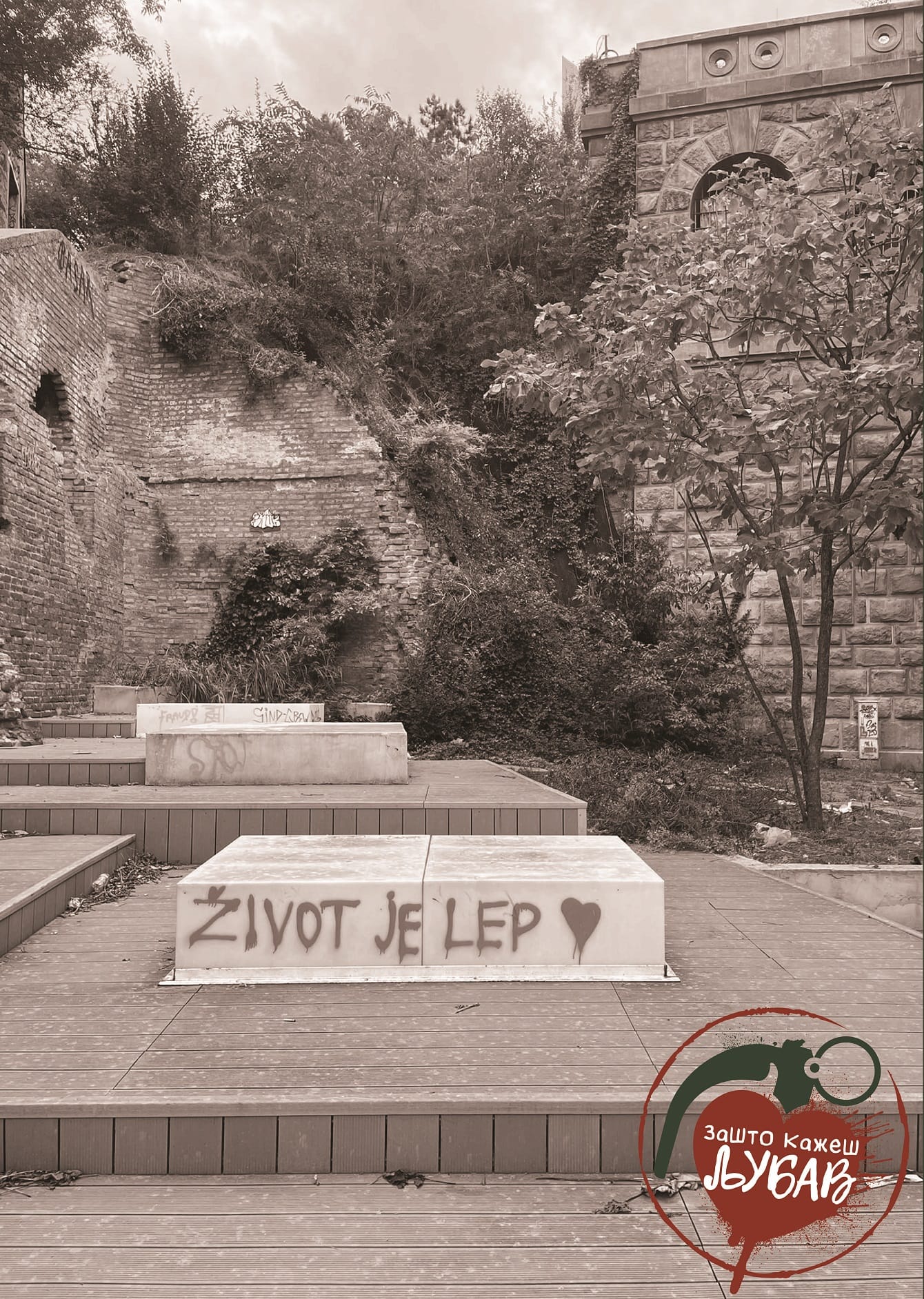
25 Sep Why Do You Say Love? in Čačak: Street – a place of conflict and/or a place of meeting?
We continued a series of events called Why do you say love? with an event at the Čačak City Library on Thursday, September 14, at 5 p.m. The focus of this gathering was on recognizing usurping and violent behavior in public space, but also on considering street art practices as a possible tool to make city spaces more accessible and safer for all citizens.
The following experts took part in the conversation: Ivan Đorđević, ethnologist and anthropologist, research associate at the SASA Institute of Ethnography; Vuk Đurić, street artist and founder of the DUK festival; Ljiljana Radošević, art historian and researcher in the field of street art and graffiti. The moderator was Tamara Marković, independent cultural manager and member of the KROKODIL Association.
We discussed the undue influences that are imposed on us every day in public space and lead to an increase in aggression and violence, becoming a dominant way of thinking about the world around us, which is especially problematic viewed from the perspective of young people. Together we tried to understand what is happening to us at both individual and community levels, as well as consider possible directions for change.
Who do the streets belong to? Do we as citizens feel safe and welcome in public space? Who is usurping our neighborhoods and in what ways? How do we respond to that? What are the social functions of street art? Can it serve us as a powerful tool for (re)creating community? To what extent can it contribute to the humanization of urban landscapes and the creation of a space of freedom?
These questions served as the outline for the exchange of opinions between the participants, both from a professional and a civic perspective, and the audience, among whom there were primarily young people, secondary school pupils, who actively participated in the entire conversation.
About the project
The aim of the project titled Why Do You Say Love When You Mean War? is to raise awareness about the dangers of undue influence spread by the state decision makers who are systematically legitimizing extreme right ideologies in order to strengthen nationalistic ideas in the wider population of Serbia, especially among the young. Three decades after a series of bloody conflicts in the former Yugoslavia, convicted war criminals, after serving their sentences in prisons abroad, are slowly returning to Serbia where they are accepted and celebrated by the highest state officials and showered with attention by the pro-regime media. It is not surprising, then, that many years after the violent breakup of Yugoslavia, people in Serbia still live with such distorted attitudes regarding the negative legacy of the 1990s. Young people show a fundamental lack of knowledge about the wars and violent breakup of Yugoslavia. Trapped in the interplay between ethno-national and cosmopolitan identity. They are the main targets of abuse and are often pawns in the hands of powerful decision-makers and the tools they use to promote retrograde, hateful policies, openly glorify convicted war criminals, promote hate speech and even directly incite violence. The unfortunately all too well known murals, stensils and graffiti are responsible for the unprecedented scale of aesthetic ideological pollution of our cities in recent years.
The project Why Do You Say Love When You Mean War? is supported by the Embassy of the Kingdom of the Netherlands in Belgrade through the MATRA program.



Sorry, the comment form is closed at this time.